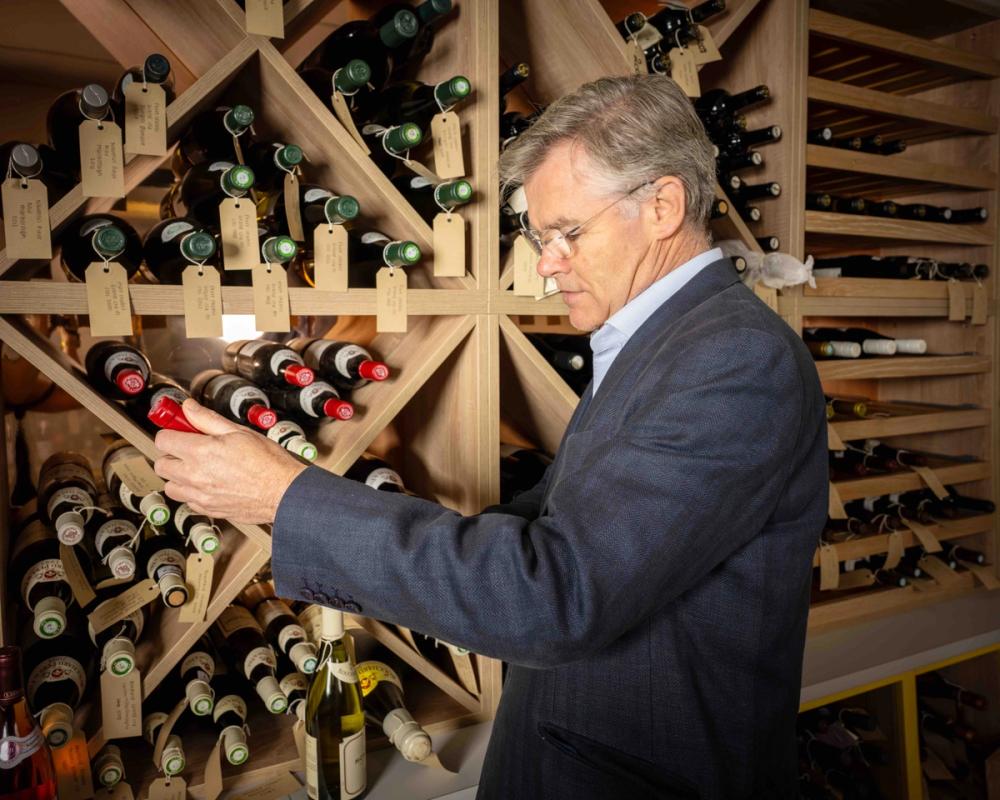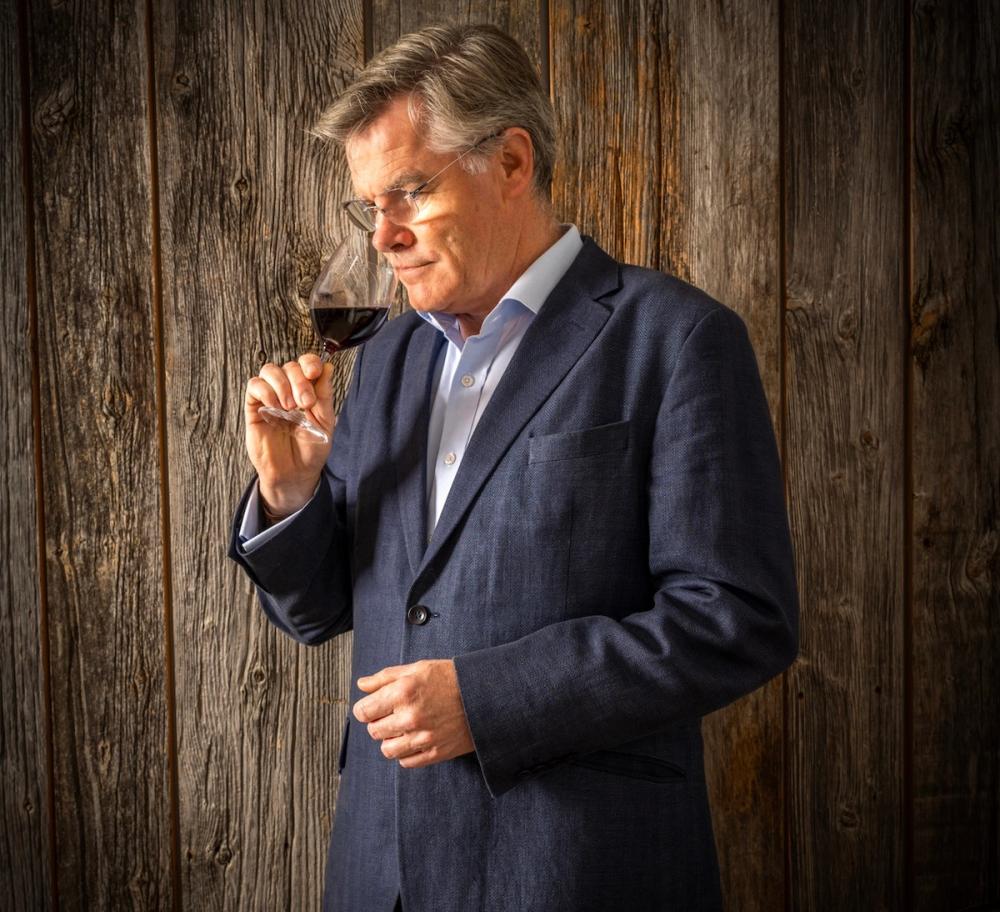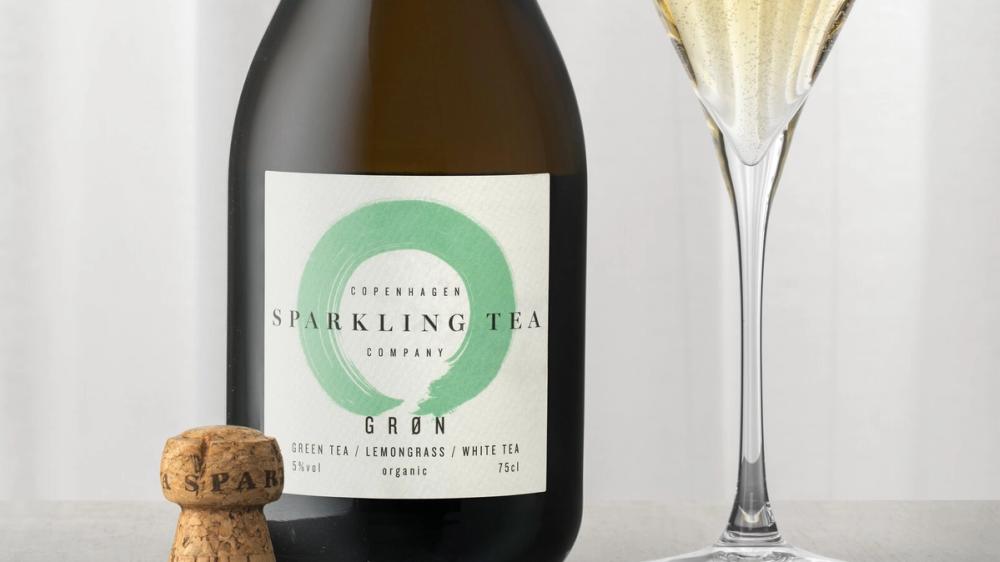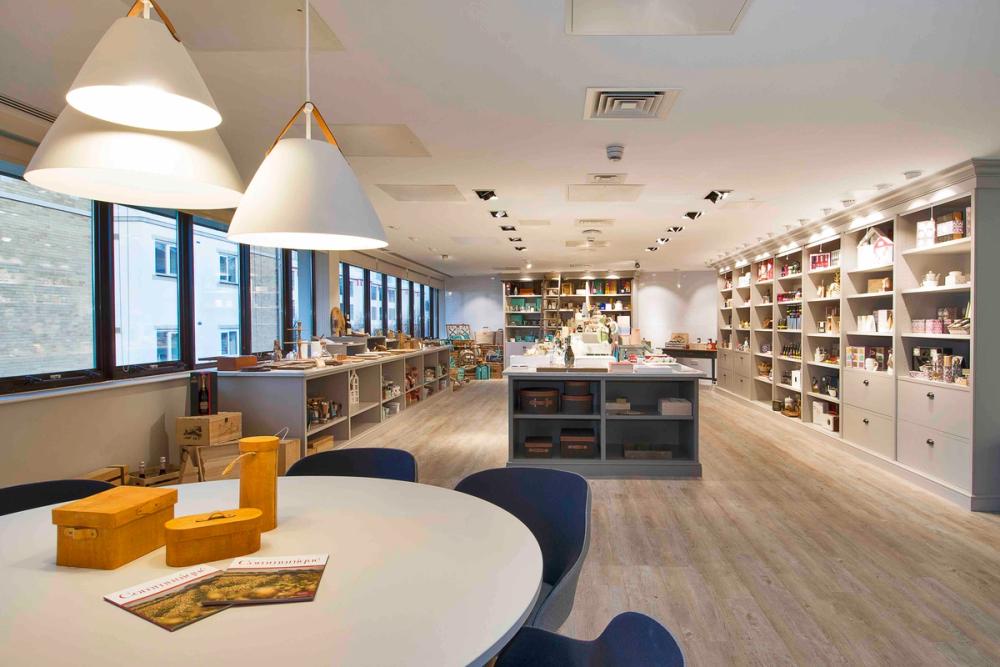Euan Mackay makes great company. An hour in his company can easily become two. But crucially, particularly for someone with the title of managing director, it’s not him doing all the talking. For whilst he is quite happy sharing his insights and management beliefs, what marks him out as a business leader to watch is his ability - and desire - to listen.
This is a business figure, after all, who has spent the majority of his career, working on the producer and brand side of the fence where it pays to understand what the person you are looking to do business with wants. You might have the best quality Ports, wines or spirits in the world, they are going to remain unsold unless you listen to what your target customer wants and find ways to catch their attention.
Which is why he has spent the first few months in his new role as managing director of Fells largely out visiting, talking to and most of all listening to as many people it does business with as possible. Be it its producer partners and stakeholders - Fells is joint owned by Symington Family Estates, Torres, Yalumba and- its third party agency producers, or its retail and on-trade customers.
It’s all very refreshing to hear

Euan Mackay has been keen to talk but most of all listen to its producer partners and key customers in order to determine how Fells can best serve them
“I have spent the last 27 years working one the export side of the business, dealing with distributors all over the world,” he explains. “What I hope I can bring to Fells is that perspective from the producer side. How do I get Fells to be the perfect distributor? After all I have seen a lot of distributor models around the world.”
Mackay is also crystal clear what the role of a UK wine distributor should be. “We have to do a job that means our producers and their brands' remain relevant to the trade in this market. A distributor is about adding value to their customers and their supply base. How you can add value to both sides.”
He adds: “I used to love it when a distributor would disagree with me and tell me how it really works in that country. They are the local people. They know their local market conditions.”
If Fells is doing its job properly then it is essentially a “conduit for someone else’s business strategy”. “That’s why we need to be more of a partner to their business. To make sure their strategy is right for this market.”
It also means knowing when to say no. “We need to have the confidence to push back. That has to be central to what we are trying to do so that we are all aligned to the same objective.”
He adds: “It can’t just be about selling more wine. We need to work together - a two way process. We know the UK is a challenging market for them but all of them say the UK is still an important shop window for the rest of the world and if you can be successful here then it helps in their other markets,” he explains.
Local experts
It means the best distributors are the ones that truly know the market they operate in. “We need to be the experts in the UK. To have the confidence to say where we think the market will be in three to five years time and then help our producers maximise that.”

Fells is looking to strengthen its position across the premium on and off-trades
Equally it means working with producers that are also as professionally focused on where they are going in the UK. It cannot be working with close to 50 producer partners that are constantly changing their strategy for the UK. “We need to be both involved in a three year strategy and then stick to it,” he stresses.
All of which means asking a lot of questions - and doing a lot of listening, says Mackay.
“I am used to asking those questions. Even the difficult ones. What is that really makes you what you are as a business? That is what our sales team needs to know when they are out telling your story to our customers. You need to have very really compelling reasons to buy your wine. What is it that differentiates you from every other producer? We need to distill that down to one or two lines.”
But he quickly stresses: “It is very hard to do.”
Talking to customers
Mackay work to date has not just been with Fells suppliers base, but he has applied a similar approach to going out to talk to key customers, particularly leading independent wine merchants, to hear directly from them about what they are looking for from a wine supplier - and Fells in particular.
Again it has made for some open but hugely rewarding conversations, he says. Quickly stressing this is not just a one off, but a “continual process” to be constantly talking to customers about what it can be doing better.
“The market, and the people in it, is of number one importance to me,” he adds.

Euan Mackay says Fells is having to change and adapt to the new market and regulatory framework that drinks importers will have to live with
So what has he found out? The big takeaway, he says, talking to leading independents, is that “there is always a reason to deal with Fells”. Which considering independents make up 10% of its business is a good place to be.
Mackay says it will never be a “one stop shop” for independents but it is good to know it is - that magic word - “relevant”. “We now need to be more relevant to more independents and to understand them better. So it’s important we make the time to listen to them,” he says.
The feedback in terms of what it needs to do better came down mainly to customer service which Mackay hopes to have addressed by bringing in a dedicated operational customer services manager.
Targeted help
Helping to keep its brands and producers relevant is why it is working so closely with its more mainstream brand shareholders - Torres and the Hills-Smith Family Estate’s Oxford Landing brand - to find ways to keep their brands relevant in the UK by targeting the more attractive and competitive lower duty rates below 11.5% abv. “We have to do what we can to mitigate the duty increases.”
He believes what Oxford Landing has been able to achieve with its 10% abv wine is a good benchmark for others to follow as it is still “making a wine from scratch”.
With around 65% of its business going through the major supermarkets its essential Fells is on top of their needs too - and managing duty and price is fundamental to that.
Which is why it is working closely with the major retailers in trying to manage the overall Port category in face of the 20% increases in duty on fortified wines as part of the government’s duty review that has seen a £1.30 increase to the bottom line of an average bottle of port.
Mackay is clearly well versed in the ups, downs and ins and out of the Port market. He now just has more of a ring side seat in seeing the impact the government’s new duty reforms are having.
He says that whilst overall Port sales were down 10% in 2023 compared to 2022, a lot of that was mitigated by importers and retailers buying in a lot of advance stock ahead of the August duty increase.
“This year will be the real test,” he fears. “We could see the category retract by 15%.”
Which is why the Fells business needs to be constantly looking for new opportunities and “the areas where we need to be stronger”.
It might have close to 50 producer partners, but is still keen to work with more where it “knows we can do a job for them” in the UK.

Copenhagen Sparking Tea is a new departure for Fells - a premium tea brand that deserves a place on the diniing table
It is also looking at new product development. Most notably the recent introduction of the Copenhagen Sparkling Tea brand that offers a quality, premium drink, ideal for hotels and top end bars with either 0% or 5% alcohol. As Mackay says it might not be made from grapes, but it has all the attributes of a fine wine and is founded by sommelier, Jacob Kocemba and was introduced to the business through its own Master Sommelier consultant, Stefan Neumann.
It hopefully makes Fells just a little bit more relevant to its diverse customer base, he adds. It means it now has a place as part of the high-end afternoon tea service hosted by The Ritz - and other similar venues.
“We took it on as part of our development agenda, but it is one we are excited about,” he says. “We want to be brand building and not just selling.”
Gifting boom
There is also a 15% chunk of the Fells business that few people outside the company would know about. Gifting. Run as a separate operation, with a specialist food and drink gifting team, it provides everything from hampers for Fortnum & Mason and Liberty, to customised knives for top end steak restaurants and everything in between.

The gifting department at Fells is a key part of business' growth strategy
Mackay says he is very excited about the potential its gifting business still has to grow, particularly in terms of adding value and again being more “relevant” to their customers and producers. If an independent wine merchant, for example, wants personalised gift bags, boxes of wine and corkscrews then Fells has the answer.
“It’s another reason to deal with us,” adds Mackay.
Moving forward
Having the support of major producer shareholders gives Fells a business model that means it can take a slightly longer term view. Yes, profits are clearly still very important, but having “true objectives” that will help build “the distribution and visibility” of its producer partners is ultimately what Mackay and his team will be judged on.
It is why it is also increasing its investment in data and analysis so that it can better understand how it is performing as well as the market it is operating in. “We need to understand what AI might mean for the business and we have taken on a systems person to do that,” he adds.
The ability to manage “compliance" across a number of areas is only going to accelerate in the coming years, particularly around energy, EPR (extended producer responsibility), packaging, glass and waste, he adds. “We now have a four-strong compliance team.”
All of which will help Mackay, the Fells team and its producer partners to continue to scale what is, on paper, already a successful business.
“We have scale now, but what can we do to add more value to our customers and producers?” asks Mackay.
Providing he keeps asking questions and listening to the answers of its producers and customers then Fells should continue to be one of the most “relevant” distributors in the UK.
* You can find out more about Fells at its website here.
* Fells is a partner of The Buyer.






























